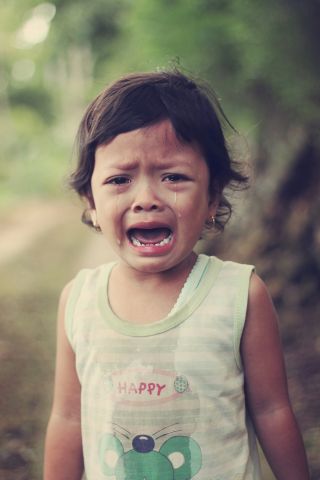Happiness
The Wake-up Call: Life Evaluations Among Youth at Record Low
Younger people report less happiness than older people.
Posted April 24, 2024 Reviewed by Lybi Ma

I was sad yet not surprised when I read the U.S. dropped from the 15th happiest country in the world to the 23rd in the latest World Happiness Report. Moreover, the report found younger people (aged 15-24) were unhappier than older people. Youth is a time of hope, vitality, possibility, friendship, and first love. Meanwhile, happiness increased for people of every age in Central and Eastern Europe. What has caused U.S. youth to have record low life evaluations?
One of the reasons is due to rising child abuse. I wrote about it in 2016. Sadly, part of that escalation has been part of the opioid epidemic and other addiction problems. In 2017, I pointed out in this post that drug overdoses were the leading cause of death in people under 50. Six years before that, I wrote about what children actually need in childrearing. Yet that post, while important, was not popular.
Over time, this paints a picture that is difficult to comprehend. Child abuse, child maltreatment, and adverse childhood experiences (ACEs) have been escalating.
Childhood in America has gotten worse. Not better.
No wonder young people’s happiness scores have plummeted. The pandemic and proliferation of technology have only exacerbated a growing phenomenon of rising maltreatment and decreased quality of life for younger people.

The Escalating Impact of Trauma
I recently read a social media post that claimed people in war zones were more resilient and that many young people in America have it too easy and complain too much.
The challenge with trauma is that it might be easier on the person who had a relatively healthy infancy and childhood. Then the trauma they endured may have caused heightened stress responses when they raised their child. Their child may have developed an even higher stress response combined with mental health issues like depression and anxiety. Additionally, the child may be more prone to using a wider range of maladaptive coping habits like smoking, drinking, eating junk foods, and or zoning out in front of screens.
These responses can be understood when examining how a baby’s brain develops under stress. Excessive stress can bathe the baby’s brain in so much cortisol (the stress hormone) that cortisol receptors can shut down. That means the baby is flooded with stress hormones that have nowhere to go. An overactive nervous system can be developed and helps to explain how people with higher numbers of adverse experiences in childhood have shorter lifespans, a greater number of diseases, and higher rates of mental health issues. It also sheds light on how each successive generation can be worse as they inherit depleted stress protection with even more adverse experiences.
Worse, support systems may be lessened when greater numbers of people in the surrounding population suffer. Depression, anxiety, and maladaptive coping like drugs, alcohol, risky sex, and unhealthy relationships can become the new norm that reinforces high levels of stress and adversity.
There Is Hope
Not only are we blessed with neuroplasticity and the ability to heal from trauma and adverse childhood experiences, but younger people are more positive about embracing the help of mental health. They are not afraid to talk about anxiety, depression, and suicide.
Younger people are also more oriented to social justice, being authentic, and preferring a balanced quality of life in the workplace.

This orientation toward mental health and social issues tells me that younger people may be more willing to learn how to tend to their babies’ needs and will work to shape a healthier future.
It also makes me wonder if the decline in happiness marks the progress in young peoples’ overall mental health journey. For instance, I inform clients that sometimes they will feel worse before they feel better when we begin therapy. That is because they are bravely confronting difficult memories and doing the work to heal in emotionally healthier ways.
I hope that younger people in the U.S. are doing the brave emotional healing work and—while sadder at the moment—will emerge healthier and authentically happier over time. Still, this is a wake-up call for everyone. May we all work collectively to create a broader home that is physically and psychologically safe for all people—comprised of extra care for our children.
References
You can take the ACEs exam test on my website here: A score of 4 or higher has been shown to lead to chronic diseases.


